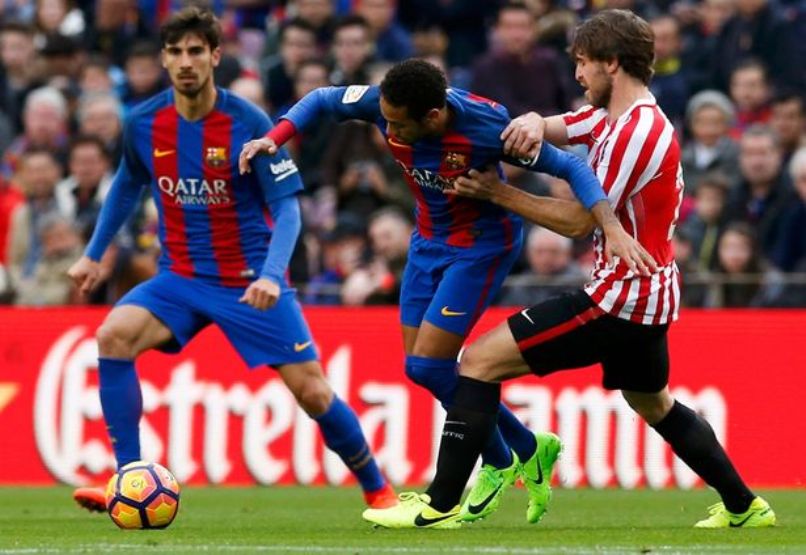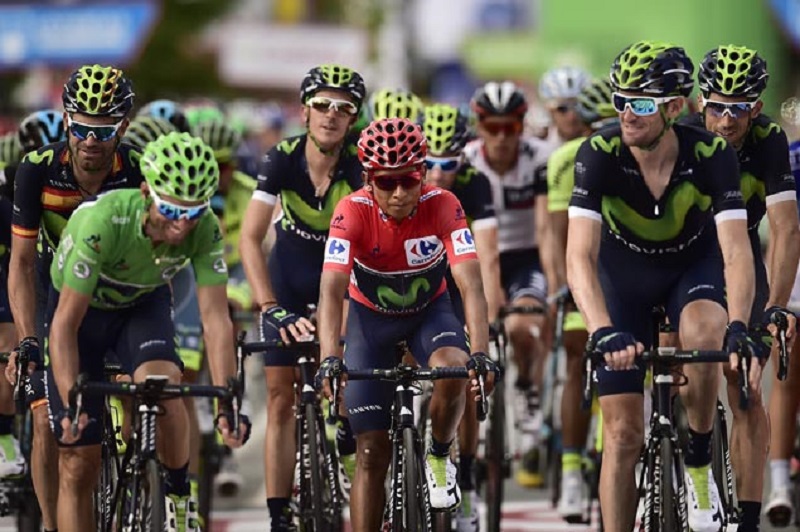 While Spain mourns following the terror attacks in Catalonia, security will be in the spotlight as two global sporting events get under way this weekend in La Liga and the Vuelta cycling race.
While Spain mourns following the terror attacks in Catalonia, security will be in the spotlight as two global sporting events get under way this weekend in La Liga and the Vuelta cycling race.
After a three-month summer break, La Liga returns with 10 matches over the weekend, including three on Saturday, among them Atletico Madrid’s trip to newly-promoted Catalan outfit Girona.
Thousands of police officers and security personnel will be mobilised in and around Spanish stadiums.
The Vuelta, one of cycling’s three Grand Tours, begins in the French city of Nimes on Saturday but the three-week race enters Spain on Tuesday with a stage finishing in Tarragona. Thousands of spectators will line the route.
Tarragona is only 20 kilometres along the Mediterranean coast from Cambrils, where a car rammed into pedestrians, injuring six civilians and a police officer early on Friday morning. One of the civilians later died.
That incident came just hours after the attack in Barcelona, when a white van sped down the popular Las Ramblas avenue, packed full of tourists on Thursday afternoon, knocking people down and killing 13.
Authorities in Spain — a country obsessed with football — have decided to go ahead with sporting events despite security fears.
The LFP, the body that runs La Liga, confirmed that top-flight matches, including Barcelona’s home meeting with Betis at the Camp Nou on Sunday, would go ahead.
A minute’s silence will be held before kick-offs around the country while Barcelona players will sport black armbands and players will wear shirts with ‘Barcelona’ replacing individual names on the back.
– Maximum measures –
“LaLiga…hopes that supporters will be able to enjoy matches normally on the opening matchday,” the league said in a mail sent to AFP.
Barcelona said that postponing Sunday’s game, due to kick off at 8:15pm (1815 GMT), had not been considered.
The club were waiting for instructions from authorities about any additional security measures that may be required at the Camp Nou, the biggest football ground in Europe with a capacity of 99,354.
“Given the increase in situations of danger, terrorism, the club have already taken measures to reinforce security,” said a club spokesperson.
“The rule is to apply the maximum possible measures, and in extraordinary situations like this, apply them much more strictly.”
In Nimes the same level of vigilance was being used by organisers of the Vuelta. They said on Friday that they were working with authorities to assure the protection of fans and of the event itself.
The first two stages on Saturday and Sunday take place in southern France before Monday’s third stage in the Pyrenees concludes in Andorra.
“Extraordinary measures” have been taken by the government of Andorra, with more agents mobilised and border controls reinforced in the tiny principality that borders France and Spain.
The Vuelta, like most cycling races, is by its very nature eminently complex in terms of security with potentially millions of spectators lining roads and large numbers of people gathering in towns where stages begin or end.
For riders, the scenes from Barcelona brought back memories of a similar attack in Nice which killed 86 people during last year’s Tour de France, casting a shadow over that race.
“Just horrific scenes reminiscent of what happened in Nice during the Tour last year. Of course our thoughts and best wishes are with all those affected in this attack,” said Britain’s Tour de France champion Chris Froome.
However, Froome and the rest of the peloton were refusing to let terrorism fears affect their build-up to the Vuelta.
“It’s something you can spend a lot of time thinking about but it’s something that’s completely outside of your control, you just hope that you wouldn’t see anything like that personally,” Froome added. – Agence France-Presse





























